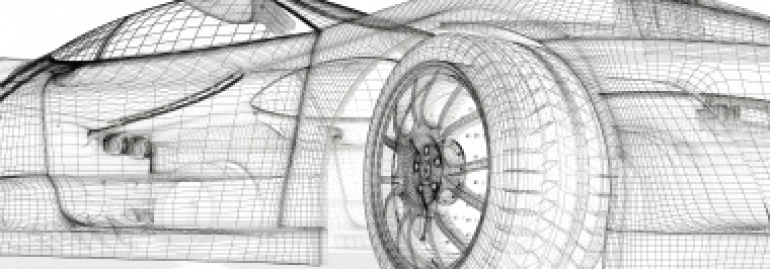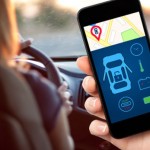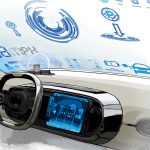The car industry is always one of the first industries to embrace emerging technologies. Technology affects the way cars are built, operate, are maintained and repaired. Each year new methods are used to make cars safer, easier to fix and make them more efficient. These are some of the most important technologies that have changed the modern car industry.
Camera Technology
Until recently camera technology was not advanced enough to be used in production cars. This has all changed and they are now an important feature in cars. Today’s digital technology and cameras are much more powerful and smaller than their predecessors.
This means they can be easily installed in different parts of a car including the wing mirrors, dashboards, lights, doors and other areas of a vehicle. These cameras let motorist view all objects surrounding their vehicle from one screen.
Sensor Technology
Sensor technology combined with the latest camera technologies make it easy for the clumsiest driver to park safely and properly without doing damage to surrounding objects or people. There are two main types of sensor technologies – Radar sensors and Ultrasonic sensors.
Parking sensors are the most well-known sensors in a vehicle but there are many others carrying out other functions in a modern car.
Other sensors included in many of today’s cars include speedometers, manifold absolute pressure sensors, throttle position sensors, knock sensors and oxygen sensors.
Cars Are More Reliant on Computers and Software
Almost every modern car has some kind of onboard computer that controls a wide range of its functions. Each year these computers get more advanced and provide more complex features.
Currently the latest onboard computers control GPS, parking, cruise control, monitor emissions, engine temperature, temperature control and much more.
This huge change in the way cars are built and controlled has also changed the way they are maintained and repaired. A mechanic or other motor professional has to be knowledgeable in the way onboard computers work as much as they have to understand the mechanics of a car.
In many situations, DIY enthusiast or those with a little bit of knowledge about cars can detect and repair a car themselves.
Car diagnostics tools were once an expensive tool only garages and repair shops could afford. Many cheaper, inferior, imported products have come on the market since.
However, these products don’t deliver what they promise and are usually a waste of time and money.
However, TOAD (Total OBD and ECU Auto Diagnostics) is an exception. This ECU, OBD and OBD2 reader and scanner solution is an affordable alternative to the systems used by garages and repair shops.
It’s designed by people in the industry for people in the industry and has millions of satisfied customers. Even better, the TOAD system includes all the features other top quality car diagnostics systems include but it only costs a fraction of the price.
Software in the TOAD system can be easily downloaded to your laptop. It’s easy-to-use interface lets you detect any problems with your car’s engine and emissions.
If a problem is found, the systems tells you what to do next. This is a much different way to deal with car problems than it was in the past and gives cars owners more control.
Increased Energy Efficient Design
Today’s car manufacturers put much more emphasis into the fuel efficiency of their vehicles. This was not always the case in the past. New environmental laws and greater concerns about our environment has led to these changes which have forced car manufacturers to clean up their act.
Cleaner fuels are also being used which release less pollutants and toxins into the atmosphere. If there is an emission problem with a car, it gets detected much easier than it would have in the past.
OBD readers and scanners can be used as soon as there is any sign of a problem such as the check engine light coming on.
It’s Easier to Get Advice and Tips
In the past you had to get trained to become a mechanic or pick up tips from someone who worked in the industry. This wasn’t always an ideal way to learn and took up a lot of time. The internet and the huge wave of motor-related websites it hosts have changed the way we learn about our cars and how to fix them.
As well as this, you can join online groups who discuss every aspect of a car, with many websites and online forums dedicated to a particular model. This makes the whole experience a much more social one. You get the opportunity to learn from others who have the same vehicle as you and can return the favor to others.
The automobile is one of the most important inventions ever created by man and has changed the lives of millions of people around the globe.
Most changes have been positive, but there have also been many negative side effects of this form of transport. These problems are being addressed and the latest technologies are making driving easier, cleaner and more efficient.
Car diagnostics systems and an ECU, OBD and OBD reader like TOAD can even tell you what’s wrong with a car by looking at a laptop screen.
Today’s technologies are developing faster with many knock on effects in the car industry.
This trend will continue and the cars people drive in fifty or hundred years may even become unrecognizable from the models we use today.





